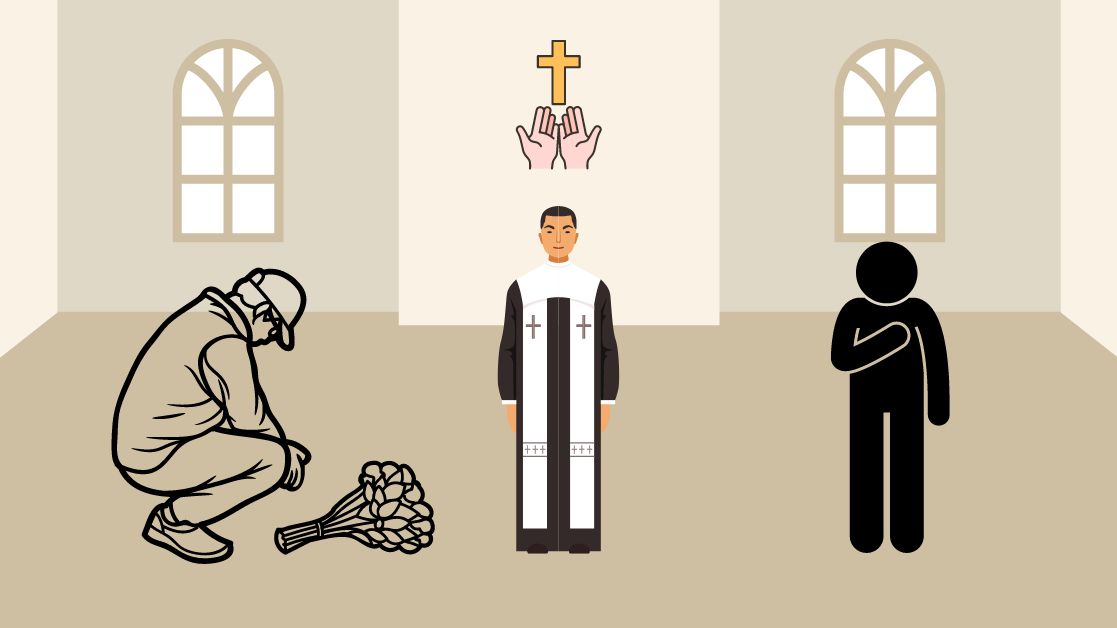The concept of mourning over sin holds significant importance in the Bible. Mourning over sin involves recognizing one’s transgressions, feeling genuine sorrow, seeking forgiveness, and embracing a path of redemption and healing.
This article will discuss the biblical perspective on mourning over sin and explore its transformative power in the lives of believers.
Acknowledging Sin
Sin permeates every aspect of human existence (James 4:8), and its consequences can be devastating, even leading to spiritual death (James 1:15; 5:20). When we sin, we prioritize the empty promises of the world over the steadfast promises of God. The root cause of our sinful actions lies in the desires that reside within our hearts (James 1:14-15).
The Bible acknowledges that all human beings are fallible and prone to sin (Romans 3:23). Recognizing the presence of sin in our lives is the first step toward true repentance and mourning. It requires introspection, humility, and an honest assessment of our actions, thoughts, and intentions.
Sorrow and Godly Repentance
When individuals genuinely mourn over their sins, it signifies a deep sense of sorrow and remorse for the harm caused to themselves, others, and their relationship with God. 2 Corinthians 7:10 emphasizes that godly sorrow leads to genuine repentance, prompting individuals to turn away from their sinful ways and seek reconciliation with God.
Every sin we commit can be seen as an act of betrayal against God. We should weep and regret in our hearts when we recognize our own sins.
To truly mourn over our sinful actions, we need to understand how they appear in the presence of a holy God rather than comparing ourselves to others.
The quickest and most consistent way to feel grief over our sins is by understanding who Jesus is and the good life He wants us to live. God has a standard for how He wants His followers to live, but we often fall short of it (Philippians 1:27).
However, our godly sorrow should lead us to repentance, which gives glory to God, who gives us grace through the gospel of salvation. Focusing our attention on Jesus and attempting to center our life on Him will alter our inner being, allowing us to triumph over sin and its effect on our daily lives (2 Corinthians 3:18).
Confession and Forgiveness
The Bible encourages believers to confess their sins openly and honestly. 1 John 1:9 demonstrates that confession serves as an act of humility and submission, acknowledging one’s need for God’s forgiveness and grace. It opens the door to divine healing, reconciliation, and restoration.
Restoration and Redemption
Mourning over sin is not futile but a transformative process that leads to restoration and redemption. As shown in Isaiah 1:18, God’s unfathomable love and mercy provide the foundation for healing and renewal. Hence, people will be reconciled with God and experience the freedom found in forgiveness.
As believers mourn over their sins, they are set on a path of transformation. The Bible emphasizes that mourning over sin is not meant to lead to a perpetual state of guilt but liberation and spiritual growth. Galatians 5:1 reminds us that Christ has set us free.
Bottom Line
The Bible offers profound insights into the human experience, including the concept of mourning over sin. Recognizing our natural fallibility, feeling genuine sorrow, and seeking forgiveness are critical steps in the journey of redemption and healing. Through this process, individuals find restoration, freedom, and a renewed relationship with God.




